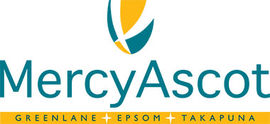Central Auckland, East Auckland, South Auckland, West Auckland, North Auckland > Private Hospitals & Specialists > MercyAscot >
MercyAscot Endoscopy
Private Surgical Service, Endoscopy (Gastroenterology), General Surgery, Gastroenterology & Hepatology (Liver)
Endoscopic Retrograde Cholangio Pancreatography (ERCP)
ERCP is a technique used to study the ducts (drainage routes) of the gallbladder, pancreas and the liver (the drainage channels from the liver are called bile ducts). A duodenoscope (long, thin, flexible tube-like instrument) is passed through the mouth, oesophagus and stomach into the duodenum (first part of the intestine) while you are under intravenous sedation. The duodenoscope enables the common opening to the bile and pancreas ducts to be visually identified. A smaller narrow plastic tube (a catheter) is passed through the internal channel of the duodenoscope to inject x-ray contrast into the bile and pancreas ducts. X-rays enable the doctor to see the images of the ducts and to photograph them.
What to expext
On admission into the Endoscopy Unit a medical history is recorded and further information given in the form of a patient video and written material. The nurse and doctor will answer any questions you have. A consent form is discussed and signed indicating that you understand the procedure, the risks and complications and you give consent to have the procedure performed.
The stomach and duodenum must be empty for a thorough and safe ERCP. Therefore you are asked not to eat or drink anything for 6 hours before the examination. ERCP is performed in the x-ray Department and endoscopy nurses will be present to support and monitor you. You will be required to lie on your tummy during the examination and be given intravenous sedation and pain relief to keep you comfortable throughout the procedure. If a blockage of the bile duct is seen a small cut (sphincterotomy) may be made to aid the flow of bile or the removal of stones. Occasionally blocked ducts require the placement of a small hollow plastic tube (stent) inside, to encourage internal drainage. On rare occasions the instruments will be unable to enter the bile or pancreatic ducts and in this case it will not be possible to complete the ERCP.
Risks + Complications from an ERCP examination are:
- main complication is inflammation of the pancreas (pancreatitis) caused by the injection of x-ray contrast. This occurs in approx. 5% of people and can cause abdominal discomfort requiring hospitalisation. In rare instances pancreatitis can become serious and lead to a lengthy stay in hospital, surgery and even death
- bleeding from sphincterotomy (small cut in the bile duct)
- infection of the bile duct
- bowel tear (perforation )
- incomplete removal of stones
- allergic reaction to the contrast medium and/or sedative medication
- crown or bridging work on teeth may be at risk during the procedure.
After the ERCP procedure you will either return to the Endoscopy Unit where you sleep off the sedative and staff monitor you (take your blood pressure, pulse recordings and temperature, etc) or you will be admitted into the hospital for overnight observations.
A detailed medical report is sent to your GP and specialist. Follow-up information and recommendations are given to you by the specialist prior to your discharge.
Document Downloads
- ERCP Preparation - Printable copy (PDF, 429.6 KB)

